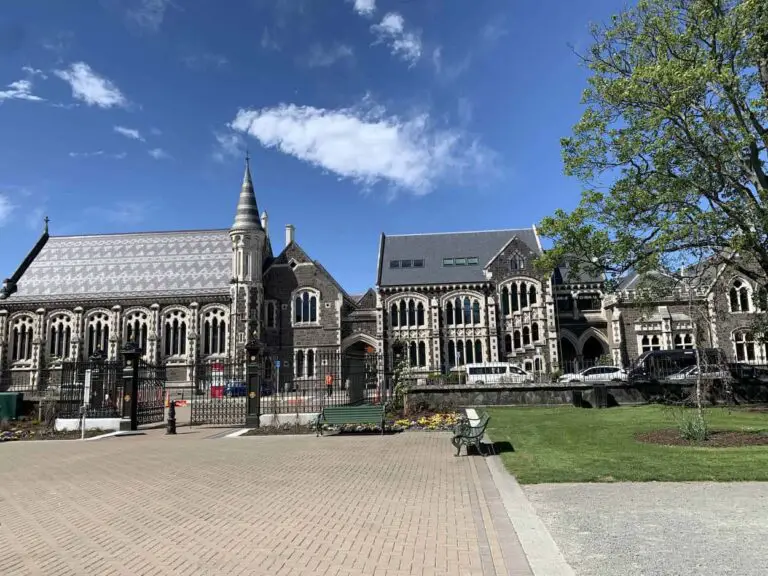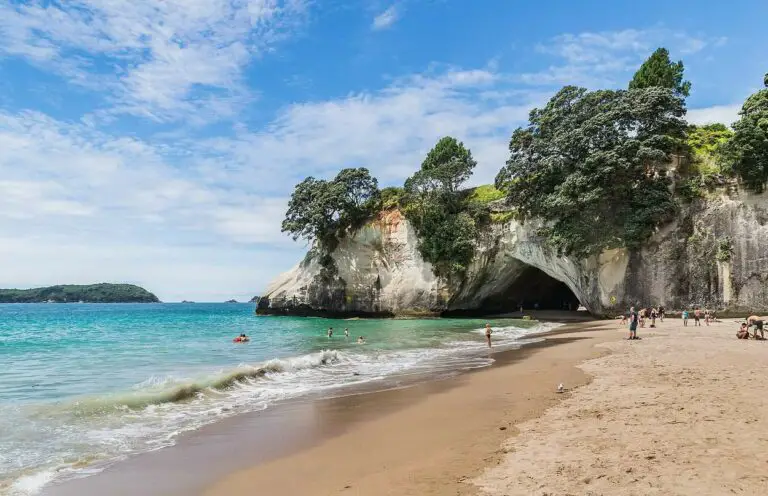15 Reasons Not To Move To New Zealand in 2024
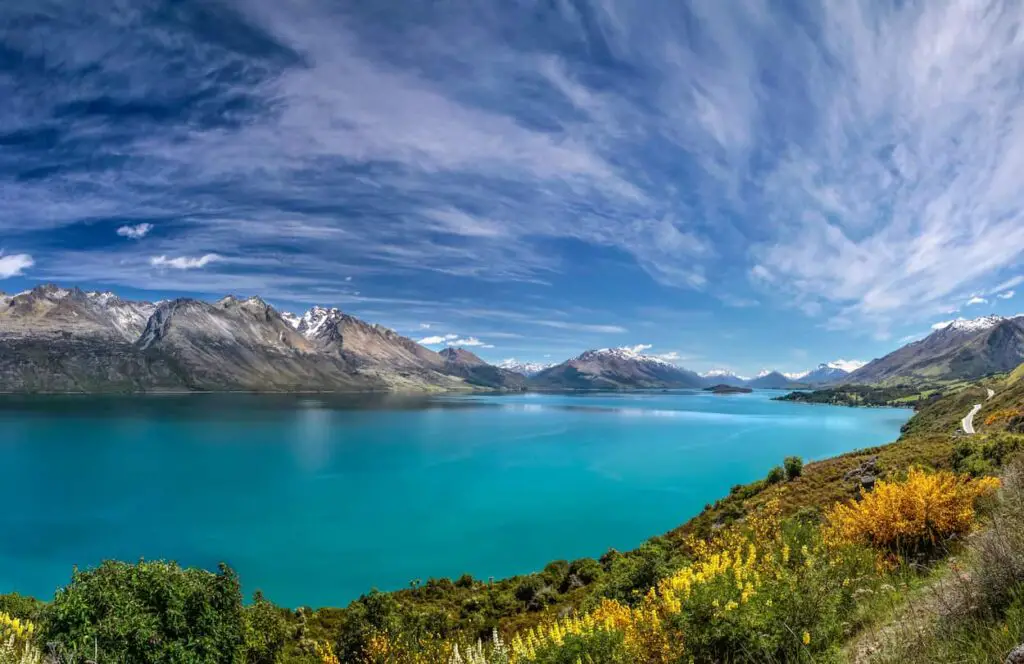
Are you thinking of moving to New Zealand? There are probably some important reasons why you would relocate to this remote part of the world. However, there are even more important reasons why you shouldn’t move to New Zealand, some of which are:
- High cost of living
- Lack of large cities
- Low-quality housing
- Low salaries
- Limited career opportunities
- Almost non-existent public transportation
- Isolation from the world
- Lack of architecture and history
- Lack of events and things to do
- High house prices
- Weather
- Dangerous sun
- Tall Poppy Syndrome
- There aren’t many people
- It might shake and flood
Living in New Zealand can be a dream for some people and a nightmare for others. To help you to understand whether this country is the right match, I have summarised the top cons of living in New Zealand.
Watch the full video on all the reasons why you shouldn’t move to New Zealand.
1. High cost of living
Many people complain about the high cost of living in New Zealand, and partly, they are right. Things are indeed expensive, especially if you compare average salaries. Besides, some imported items and products can get very pricey.
For instance, vegetables and fruits that are not in season will cost you much more than in the US or the UK.
High costs are also caused by the isolation of New Zealand from the rest of the world. Hence, many goods are imported from overseas, which drives prices up. In fact, many food items come from abroad, making having a healthy diet unaffordable for some people.
Rents and house prices are also increasing year after year. About half of your income will be spent on rent in most cities. Someone with an average income can not afford to live in the center of major cities.
Also, you will struggle to save any money because it will be spent on rent in most cases.
The average cost of living for a single person is 4,183 NZD (2,572 USD), and a family of four will need about 7,645 NZD (4,701 USD) per month to live comfortably. Considering an average salary of 56,000 NZD, managing these living expenses can become very challenging.
In fact, a single would need to earn at least 70,000 NZD before tax to cover the main living expenses. This salary will give you 4,579 NZD net per month.
However, it applies more to larger cities like Auckland and Wellington. In other places, you could live quite comfortably on about 3,500 NZD (2,152 USD) and less per month.
2. Lack of large cities
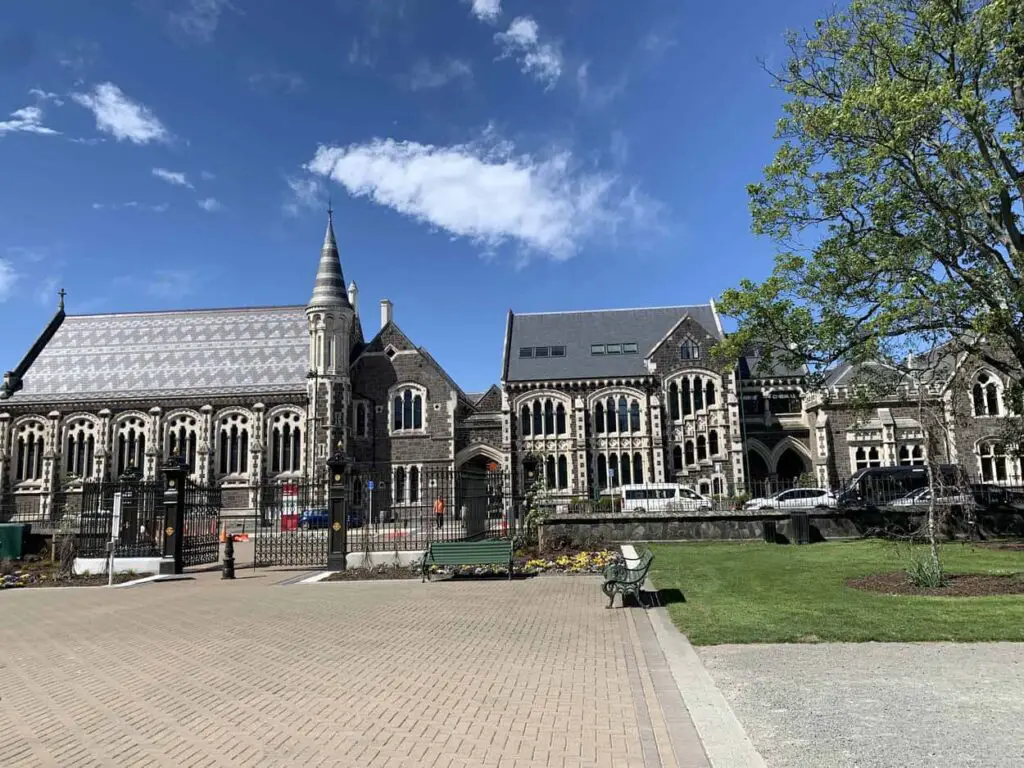
To put it simply, if you are a city person and living in a megapolis means the world to you, moving to New Zealand is the worst you can do.
The largest New Zealand city is Auckland, which has about 1.6 million people. In fact, one-third of the country lives in Auckland.
Other somewhat big cities are Wellington and Christchurch, with populations of 419,087 and 381,000, respectively. The Wellington area includes other small cities like Porirua, Lower Hutt, and Upper Hutt.
Wellington alone has a population of about 200,000 people.
3. Low-quality housing
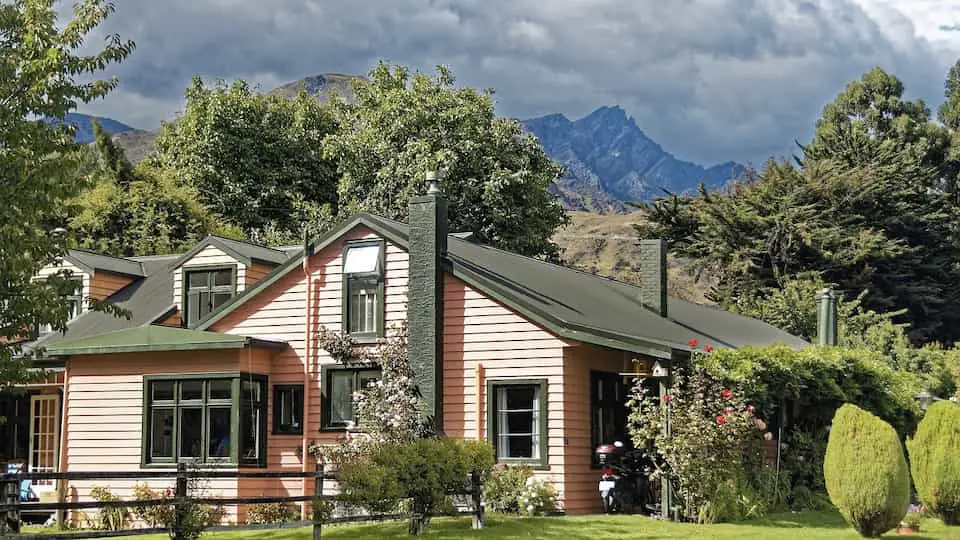
If you have lived in European countries, you will immediately notice how badly houses are built in New Zealand.
Firstly, they are constructed out of light materials like a wooden frame. Many buildings from the past century aren’t insulated, making them very cold for the most part of the year.
If you are used to houses built of stone, you might see New Zealand’s homes as insecure and fragile constructions. In addition, many homes are described as leaky; you guess what it means.
That said, with time, New Zealand learned how to build. Also, the government constantly issues new laws regarding housing, which sets the standards for construction companies. Therefore, today, the majority of new homes are constructed well.
4. Low salaries
The average salary in New Zealand is about 56,000 NZD, which is just 34,544 USD. The after-tax income of the average earner is 45,362 NZD yearly or 3,780 NZD monthly; it translates to 2,331 USD per month.
While it’s enough to live on as a single, a family won’t survive on this amount.
Generally, salaries in New Zealand are lower than in comparable countries, e.g., Australia, the UK, the US, or Canada. It’s also the reason why so many Kiwis are moving to Australia.
If you have a family, both you and your partner have to work to sustain a good quality of life in New Zealand. Saving money in this country is very difficult.
That said, most full-time workers can afford to buy a house, thanks to the relatively low mortgage rates (about 6%).
Why are people leaving New Zealand? Read here.
5. Limited career opportunities
If climbing a career ladder is on your horizon, you might need to reconsider moving to New Zealand. Due to the small population and remoteness of the country, it might be hard to get a job in particular fields or to develop career-wise.
For instance, if your profession is related to construction, then New Zealand is great. Yet, if you work in some limited in New Zealand industries like automotive, art, music, mining, and many others, this country is a really bad fit.
On the other hand, you will have excellent employment opportunities in the following industries:
- Business
- Construction
- Retail
- Food, culinary, and hospitality
- Accommodation
6. Almost non-existent public transportation

You will need a car in New Zealand unless you live in Wellington or Auckland. Public transportation is minimal, especially for travel between the cities.
There is only one train and a few bus companies. Moreover, public transport is costly. You will be better off financially when owning a car.
Overall, New Zealand doesn’t have an established rail system for passenger transport. For example, the train from Auckland to Wellington leaves very early, once a day, and is slow and incredibly expensive. Yet, buses are pretty reliable.
For travelling to remote areas, you want to purchase your own car because bus routes are minimal.
New Zealand has a size similar if it was stretched from Denmark to the bottom of Italy in size. When you take it into consideration, the fact of luck of the public transportation is more striking.
Add to it New Zealand’s narrow and hilly roads, and the car doesn’t seem like a great way to get around (at least fast).
However, New Zealand has several airports, including one in Wellington, Christchurch, Queenstown, Rotorua, and Dunedin. Moreover, there are smaller domestic-only airports in almost all cities in the North and South islands.
So taking a flight between major cities is pretty straightforward, although not always cheap. You can expect to pay about 100 USD for a round trip from Auckland to Wellington with a Jetstar.
7. Isolation from the world
New Zealand is a very remote place, and you will understand it by looking at a map. The nearest places you can travel to are small islands in the Pacific.
The next closest destination is Australia, but still, it will take about 3 hours to reach. Travelling to Europe is very expensive and time-consuming; plan around 24 hours to complete your trip.
Consequently, the location of New Zealand is a significant drawback for many people. That’s why they decide not to move there in the end.
Before moving to New Zealand, weigh out how important to you travelling and visiting your friends and family are. If it’s crucial and you want to go overseas more often than once per year, you better reconsider moving to New Zealand.
8. Lack of architecture and history
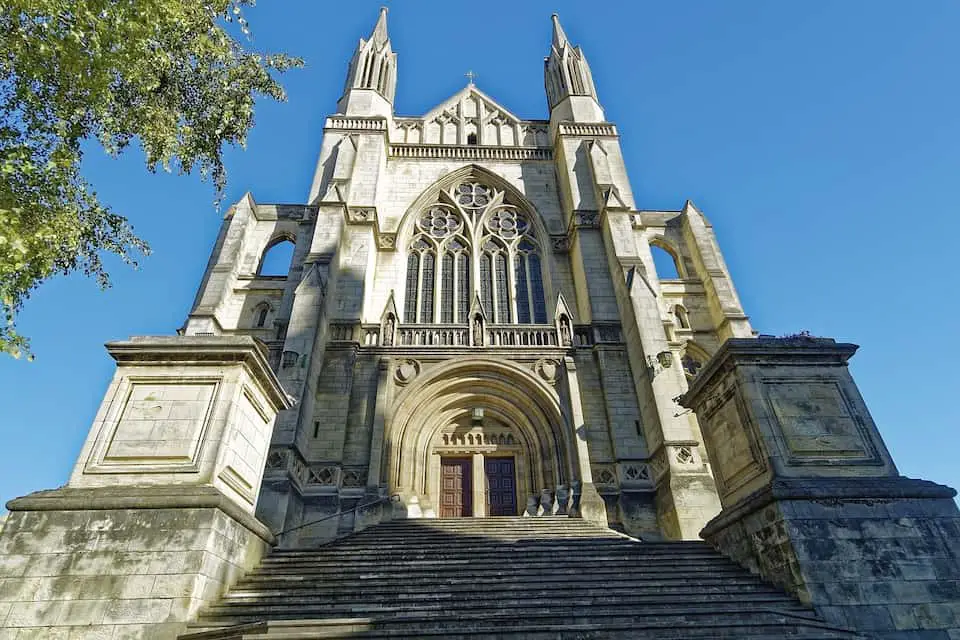
That might be obvious, but it is worth mentioning that due to the age of New Zealand and its lack of history, the architecture is new. Consequently, you should not expect majestic buildings like the ones you will see in Europe. In fact, the US and Canada have more architectural sites.
Besides, even modern houses aren’t beautiful either. New Zealand is missing the taste for city architecture.
Christchurch has by far the most historical British architecture in New Zealand, but most of it was destroyed during the earthquakes. Napier, a city in Hawke’s Bay, is built in the Art Deco style and is also one of the most beautiful cities in the country. Apart from this, our buildings are pretty simple and have only one store.
9. Lack of events and things to do
In terms of entertainment, New Zealand wins in the outdoor section but loses in anything else. Cultural and social life is very limited here, mostly due to the free time preferences of locals (outdoors again) and the small population distributed across the country. It makes New Zealand very provincial.
Ultimately, If you love events and being out and about socially in the city, expect only a limited number of events and “things to do,” even in large cities. Outside of Auckland or Wellington, New Zealand is in a deep sleep.
Moreover, New Zealanders prefer parties at home instead of being entertained by events all the time. Flea markets on the weekend are often seen, but festivals are rare. Someone who used to live in Europe will definitely miss this part of their life.
10. High house prices
In 2022, Auckland had some of the highest real estate prices across all other cities in the world. In fact, it’s even more expensive than in Sydney or Melbourne.
Not only in Auckland but across New Zealand, house prices are very high. The median house price in the Summer of 2022 was 991,674 NZD.
Therefore, you can expect to pay about 900,000 NZD for an average family home. In some remote areas, you can buy a decent house for 500,000 NZD, but still, it’s over 300,000 USD. For that money, you can get a home for much less in the US or somewhere else.
11. Weather
If you think New Zealand is a tropical paradise or new Fiji, I must upset you. New Zealand’s weather isn’t much different than in many US states and European countries. In fact, it’s very similar to Ireland, but with more sunshine hours.
Overall, the weather can change in a matter of minutes, and you better have an umbrella handy. Winters are pretty wet with a lot of rain, especially in Auckland.
If you choose to live in New Zealand’s capital, be prepared for wild wind since this place is called the windiest city in the world!
Moreover, don’t expect high temperatures anywhere in New Zealand. Even in summer, it rarely goes above 26°C. Generally, across the country, the temperature rarely goes below zero. It can happen a few times during the winter in the north.
That said, depending on the geographical location, the climate zones change from subtropical in the far north to temperate climates in the far south. If you are craving a change of seasons and a more European climate, the South Island is the best choice.
For instance, the Auckland region is described as warm, humid, and very changeable. Winters are mild, with an average temperature between 7°C and 15°C.
If you want to swim in the ocean from time to time and enjoy a warmer climate, then head to the North Island. Yet, even on the North Island, the weather differs a lot. Auckland is the warmest large city, but it gets a lot of rain.
Mean annual temperatures range from 10°C in the south to 16°C in the north of New Zealand. The coldest month is usually July, and the warmest is January or February.
Overall, you will get more sunshine than in many other places. There are at least 2,000 hours of sunlight annually in any part of New Zealand.
On the map, you can see the climate zones of New Zealand with average annual temperatures:
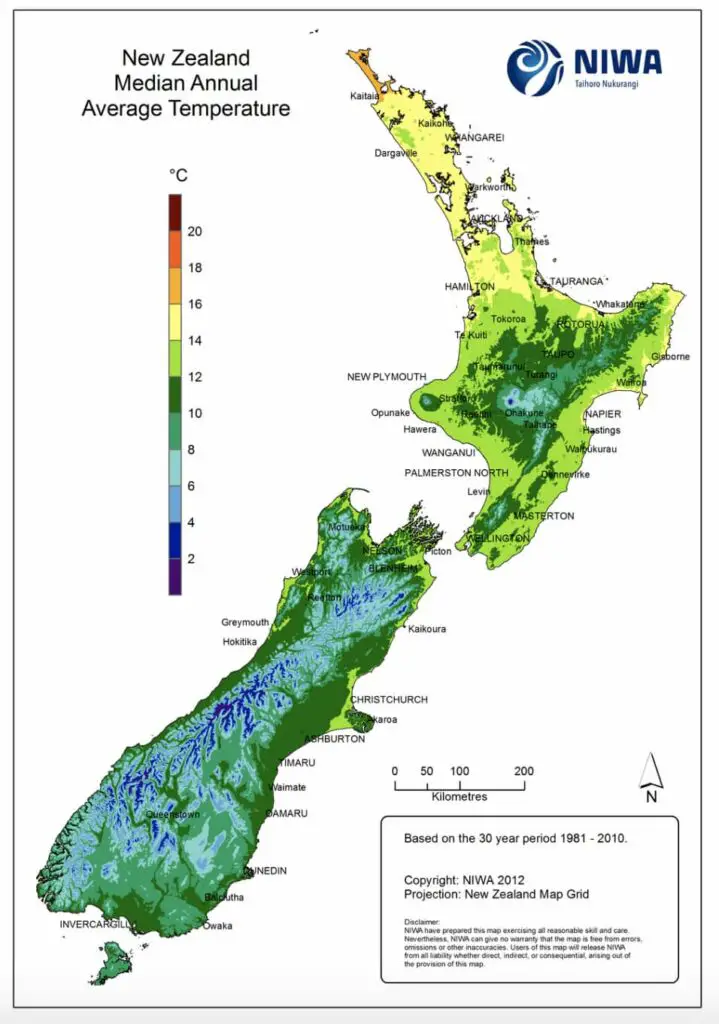
12. Dangerous sun
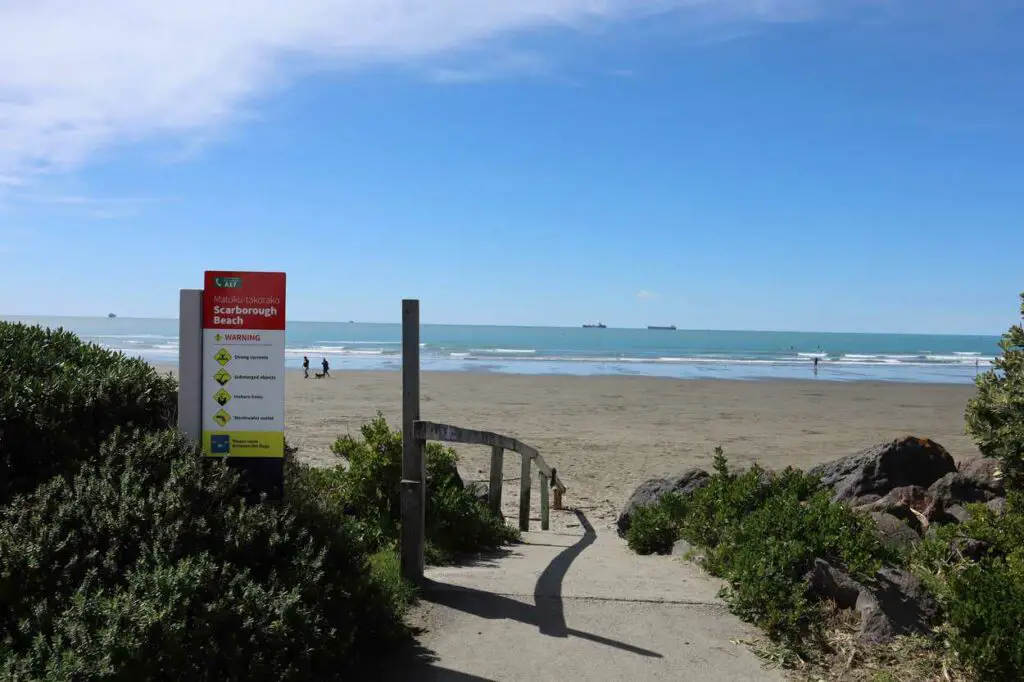
To continue with the weather, New Zealand’s sun is another reason not to move here. You might be surprised, but New Zealand is among the countries with a high risk of skin cancer.
According to statistics, New Zealand registers thousands of skin cancer cases every year.
The reason for this is a hole in the ozone layer under which the country is located. People are constantly exposed to intense ultraviolet radiation. So, it’s very easy to get sunburn and even melanoma.
13. Tall Poppy Syndrome
Tall Poppy Syndrome (TPS) is a dark side of culture in New Zealand. It’s when someone envies, resents, or mocks a person with a significant level of success, talent, or status. People don’t want you to stand out from the crowd, so you shouldn’t.
A recent survey of Instagram users in New Zealand Instagram users revealed that 45% of respondents had been victims of Tall Poppy Syndrome, or at least they believed so.
In simple words, Kiwis don’t like the idea of one person being ‘superior’ to anyone else. Such people are assumed to be arrogant and big-headed, which is not particularly true. It’s often just pure jealousy and the polar opposite of how success is accepted in the US.
14. There aren’t many people
With about 5.1 million people and the size of the UK, New Zealand isn’t a very populated country. In fact, the current population density is about 19.37 people per square kilometre. In contrast, the UK has 281 people on one km2. That’s almost 30 times more dense than in New Zealand!
15. It might shake and flood
Unfortunately, earthquakes occur very frequently in New Zealand due to the country’s geographical location. It lies in the collision zone between the Indo-Australian and Pacific tectonic plates, where many earthquakes and volcanoes occur.
Also, if you think that there is no crime in New Zealand, read this article.
There is also a constant risk of these plates being moved and swiping all islands away (as it was a million years back). However, the possibility of you catching this event alive is pretty low.
The largest recent earthquake was in Christchurch on 22 February 2011. 185 people died during this event. However, the highest-risk zone isn’t the city of Christchurch but Wellington, followed by Napier and Hastings.
It might sound terrifying, but earthquakes happen every day in New Zealand. About 14,000 earthquakes occur each year, of which between 150 and 200 are large enough to be felt.
Nonetheless, the probability of being killed by an earthquake or volcano explosion shouldn’t stop you from moving to New Zealand. Of course, unless you are very paranoid about it.
The government does everything to ensure the safety of its residents, for instance, by introducing strict codes and regulations for buildings.
That said, recent events have shown that not only earthquakes are terrifying New Zealanders. Floods and cyclones are pretty common and cause significant damage to properties and infrastructure and even take lives away.

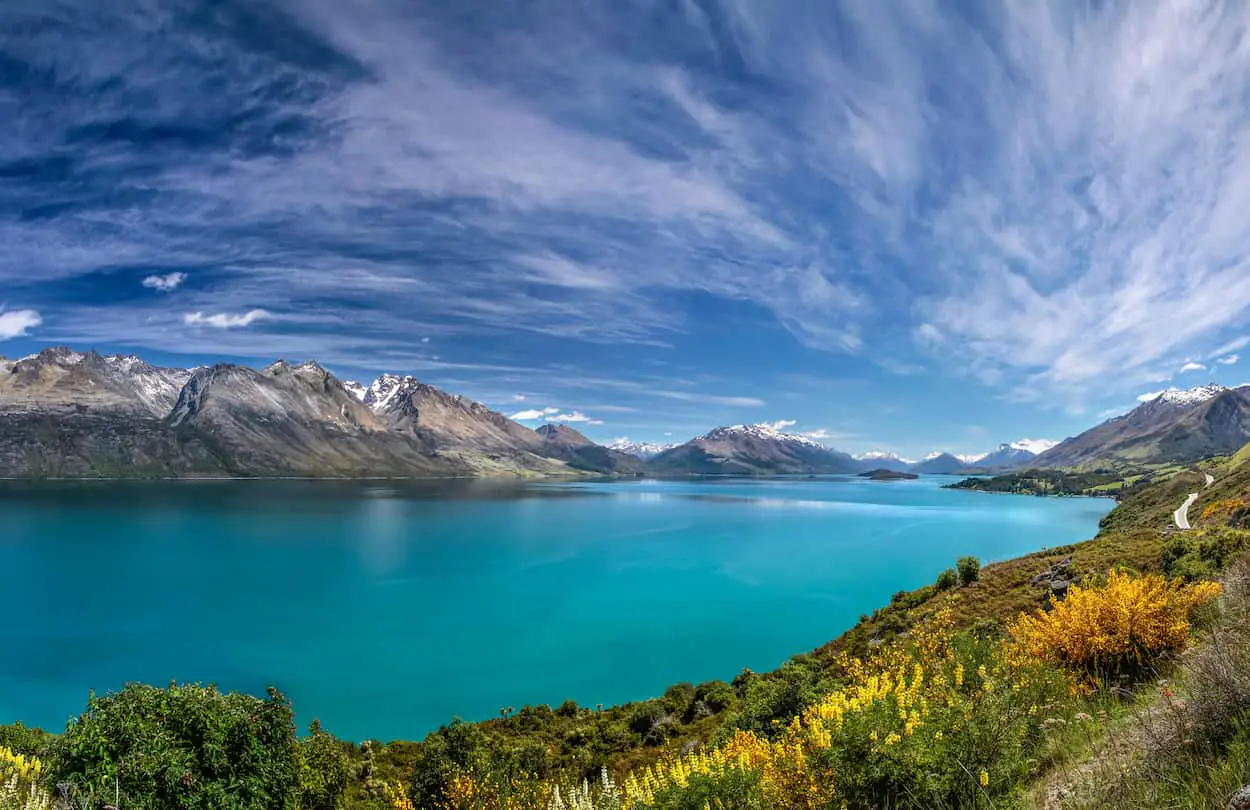
![New Zealand vs UK: Which Country Is Better For Living? [2024]](https://simplenewzealand.com/wp-content/uploads/2023/01/andreas-sjovall-ZZUPu8ARD8U-unsplash-768x432.jpg)
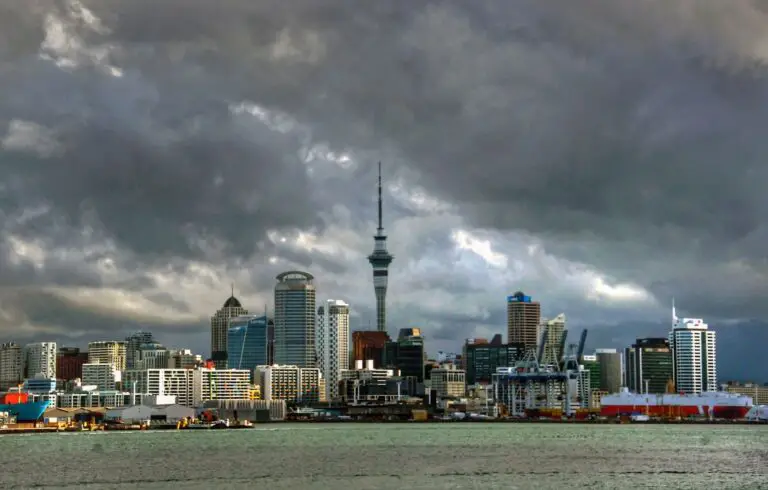
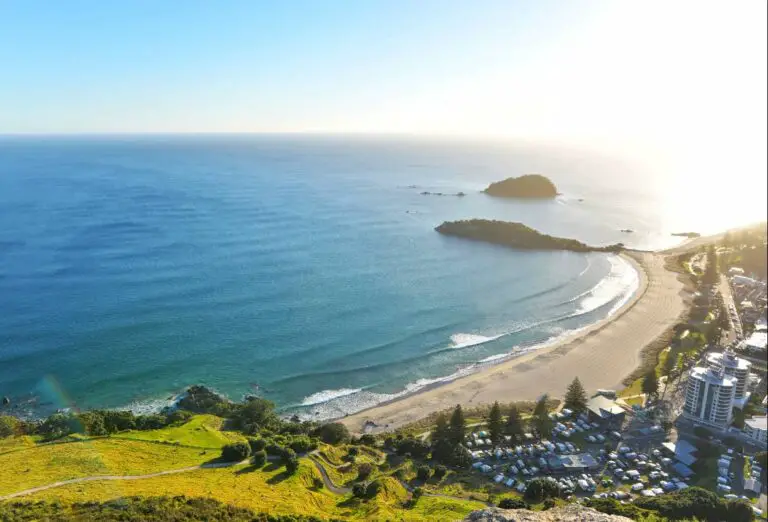
![Pros and Cons of Living in Dunedin, New Zealand [2024]](https://simplenewzealand.com/wp-content/uploads/2023/06/new-zealand-4838951_1280-1-768x578.jpg)
